climatechange
Latest
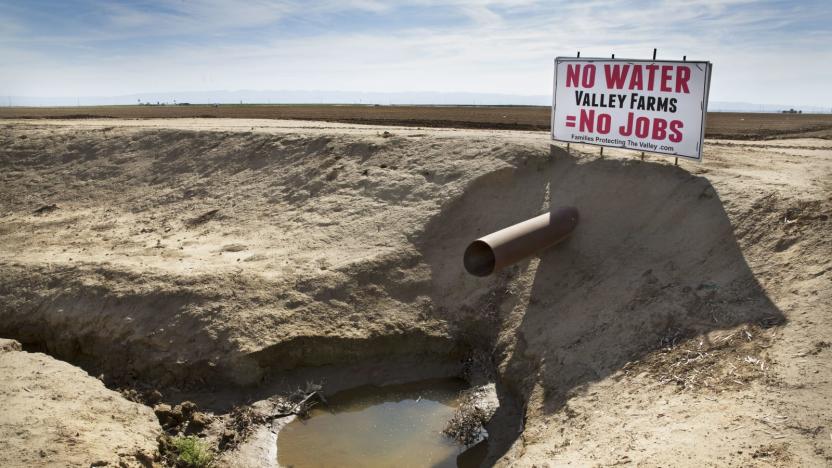
US agriculture agency tells staff not to mention climate change
It's no secret that the Trump White House is no fan of climate change science, but that's been having more of a chilling effect than you might think. The Guardian has obtained emails showing that the US Department of Agriculture's farm conservation division, the Natural Resources Conservation Service, has been telling staff to avoid using language that directly references climate change. Instead of "climate change," workers are told to refer to "weather extremes;" instead of talking about how the country can "reduce greenhouse gases," they're asked to talk about "build[ing] soil organic matter."

Federal scientists: US already feeling effects of climate change
The EPA and the administration might not be fans of climate science, but government scientists from 13 federal agencies have concluded that Americans are feeling the effects of climate change right now. According to the draft report obtained by The New York Times (and available on the Internet Archive since January), the average temperature in the country has risen dramatically since the 1980s. Also, it emphasizes how "many lines of evidence demonstrate that human activities, especially emissions of greenhouse (heat-trapping) gases, are primarily responsible for recent observed climate change."

House science chairman thinks climate change is 'beneficial'
Forget the piles of peer-reviewed research accumulated by scientists over decades, climate change is actually great news for mankind. Or so says Texas Rep. Lamar Smith, the Republican head of the House Committee on Science, Space and Technology. In a baffling editorial titled "Don't Believe the Hysteria Over Carbon Dioxide", Smith complains that Americans are being brainwashed by "alarmists' claims" (read: scientific consensus) and urges readers to consider the many perks of atmospheric armageddon. For example, churning carbon dioxide into the environment is no biggie because plants love the stuff. "A higher concentration of carbon dioxide in our atmosphere would aid photosynthesis, which in turn contributes to increased plant growth. This correlates to a greater volume of food production and better quality food," Smith writes, referencing uncited "studies" while ignoring reams of research that show any benefit would be canceled out by other climate factors, such as drought and temperature increases.
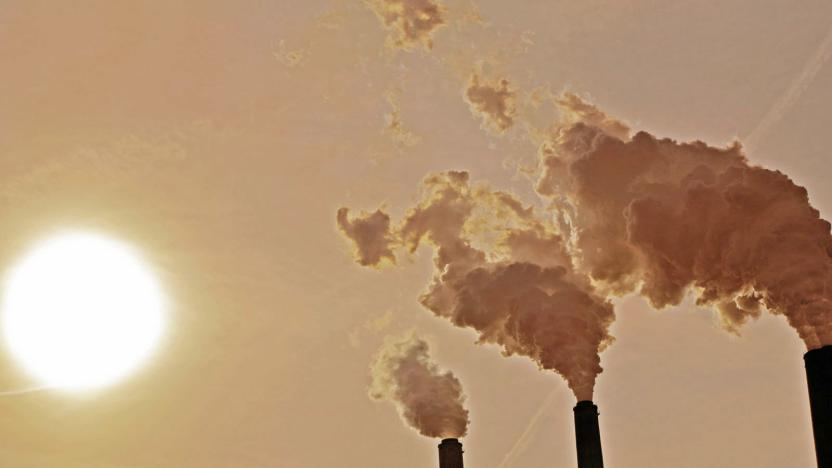
Scientists: Suck CO2 out of atmosphere or face the consequences
We need to start removing carbon dioxide from the atmosphere as soon as possible. If we don't, future generations will have to choose between biblical weather events or spending trillions of dollars trying to avoid them. This is the grim prognosis from an international team of researchers led by former NASA climate science chief, Professor Jim Hansen. Speaking to the Independent about the team's latest research, Hansen said the "shit is hitting the fan" in terms of current climate change progress.

Researchers find coral reefs in a place they shouldn’t exist
While the waters of the North Atlantic and South Pacific tend to have what hard corals need to survive, the North Pacific doesn't, and it has been thought that deep-sea coral reefs were a near impossibility in that part of the ocean. But researchers at Florida State University and Texas A&M University have discovered a few reefs in the North Pacific that don't seem to be following the rules. Their findings were recently published in Scientific Reports.

Climate change is making it harder for airplanes to take off
We already know that climate change might make air travel more turbulent. But now it looks like it will impact it in an even more drastic way: A new study in the journal Climatic Change examines how rising air temperatures will affect airplanes' ability to take off. And the results aren't promising.
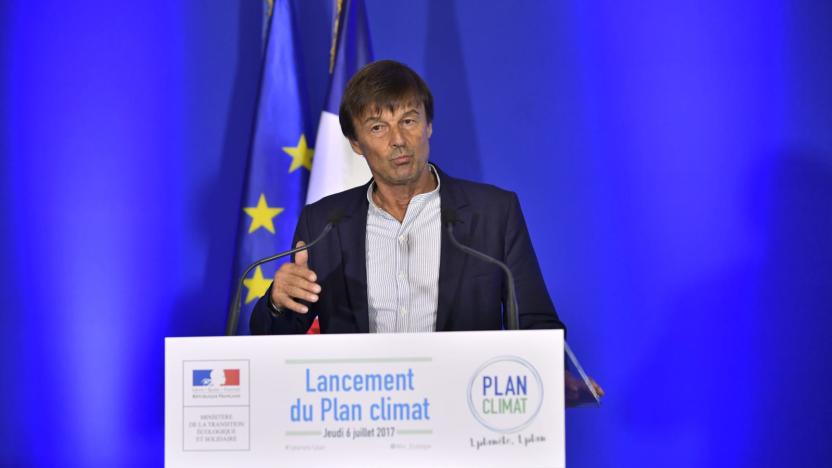
France plans to ban fossil-fuel-powered cars by 2040
France's ecology minister has laid out an ambitious plan that would see the nation effectively ban the sale of fossil-fuel-powered vehicles by 2040. Nicolas Hulot, as quoted by the Financial Times, claims that France is announcing the "end of the sale of gasoline and diesel cars" by the deadline. As Le Figaro adds, it's not clear how the country will enforce the transition, but Hulot says that the "conditions are there."

Climate change could prevent food getting around the world
Climate change is bad news for basically every facet of human existence and now it's set to literally hit us in the gut by threatening global food supplies. According to a new report by leading think tank Chatham House, global warming is on course to produce more violent storms and increased flooding, affecting both crop yields and global trade routes.

The Air Force and IBM are building an AI supercomputer
Supercomputers today are capable of performing incredible feats, from accurately predicting the weather to uncovering insights into climate change, but they still by and large rely on brute processor power to accomplish their tasks. That's where this new partnership between the US Air Force and IBM comes in. They're teaming up to build the world's first supercomputer that behaves like a natural brain.

Research finds deadly heatwaves will occur more often
A study published today in Nature Climate Change predicts that deadly heatwaves will become more frequent in the future. The study found that currently, around 30 percent of the world experiences life-threatening heat for at least 20 days per year. But if greenhouse gas emissions continue to grow, that number could jump up to 74 percent by 2100.

Hawaii defies Trump with law upholding Paris climate accord
Nearly 1,500 US local governments and companies have vowed to uphold the Paris climate deal, but Hawaii is the first state to make its defiance legally binding. Governor David Ige signed Senate Bill 559, committing the state to keep up its end, despite US President Trump opting out of the 195-nation deal. "Hawaii and other Pacific Islands are already experiencing the impact of rising sea levels and natural disasters," said Ige. "That means we need to be first when it comes to creating solutions."

61 US cities and three states vow to uphold Paris climate agreement
Shortly after Donald Trump told the world that the US would withdraw from the Paris Climate Agreement, American cities and states vowed they would abide by the international compact anyway. At least 61 mayors followed through on a previous pledge to ignore Trump's decision and released a statement vowing to uphold the Paris accords. Meanwhile, the governors of California, New York and Washington announced they would form the "United States Climate Alliance" to do the same as a multi-state coalition.
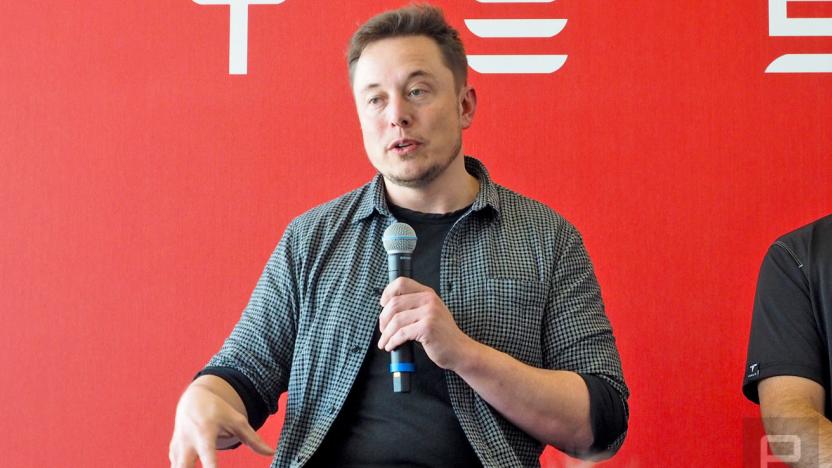
Elon Musk leaves Trump’s council after US exits Paris climate pact
Today, president Donald Trump announced that the United States would be withdrawing from the Paris Accord. As promised, Tesla CEO Elon Musk then announced that he would no longer be part of presidential councils based on Trump's decision.

Trump withdraws US from Paris climate change agreement
President Trump has announced that the US will be withdrawing from the Paris Accord. The president made the statement today from the White House Rose Garden. The international agreement to reduce greenhouse gas emissions was made in 2015 and President Obama signed the US on last November. The 143 countries that have ratified the agreement recognize a number of goals, which include limiting global temperature increases to less than 2 degrees Celsius.
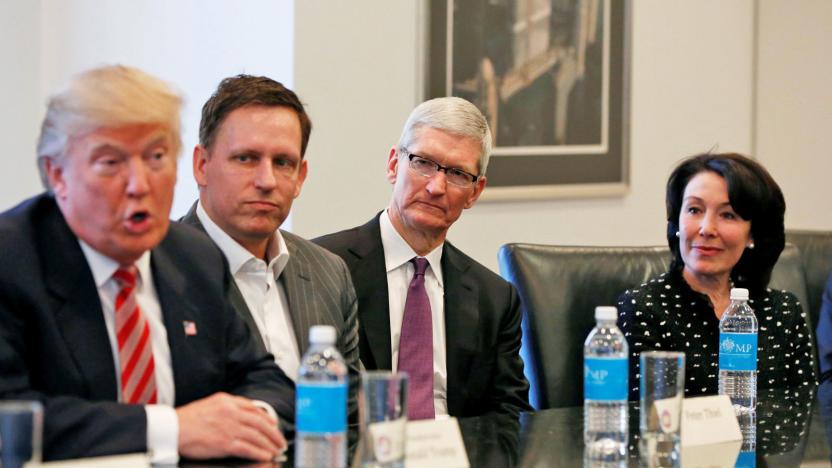
Apple, Microsoft and others supported staying in the Paris climate pact
With President Donald Trump set to make a decision on the Paris climate change agreement today, Apple, Google, Facebook, Microsoft and 21 other companies published an open letter urging him to keep the US in the Paris Agreement for the good of the country's economy. The letter was released last month and posted as a full-page ad in the New York Times, Wall Street Journal and New York Post. "As some of the largest companies based or operating in the United States, we strongly urge you to keep the United States in the Paris Agreement on climate change," the letter reads. "Climate change presents both business risks and business opportunities. Continued U.S. participation in the agreement benefits U.S. businesses and the U.S. economy in many ways."

Sorry, you can't plant enough trees to offset fossil fuels
Ever planted a tree to feel better about your environmental footprint? It's a good idea, but it might not have as much of an effect as you'd hope. A simulation-based study has determined that it would be utterly unrealistic to plant enough trees to offset humanity's CO2 emissions as they are -- the plantations would need to be so big that they'd "eliminate most natural ecosystems" or cut into food production. Even under the reductions from the Paris Climate Agreement, you'd still have to replace natural ecosystems on an area more than a third the size of the world's forests. The most viable option involving trees would require both "ambitious" emissions reductions and improvements to both nurturing the plants as well as capturing their CO2.
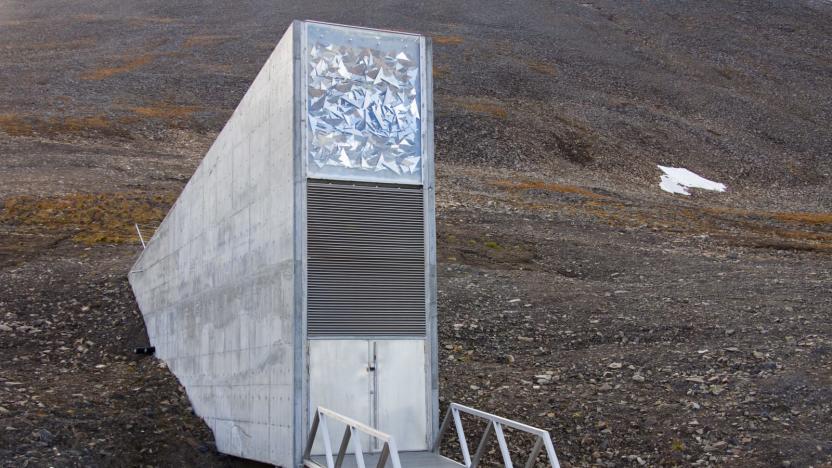
Doomsday seed vault upgrade protects against a warming Arctic
When melting permafrost poured into the entrance of the Svalbard Global Seed Vault, there was an understandable worry. What good is safeguarding the world's crops in the Arctic if even that area isn't immune to the threat of climate change? Well, you can relax. Statsbygg, the Norwegian construction group behind the vault, has outlined "technical improvements" to keep the entrance safe. It's building waterproof walls and ditches to channel water away, and it's moving electrical equipment out of the entrance to avoid creating a source of heat. The vault will also take fewer visitors to reduce body heat levels -- even that small amount could make a difference.
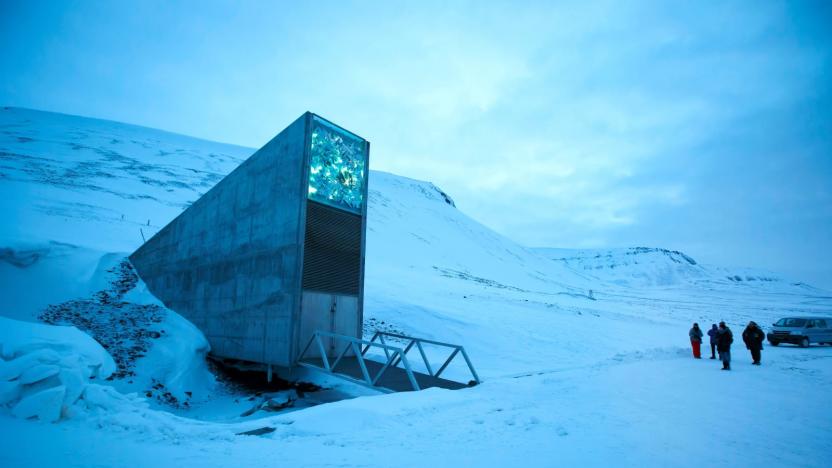
Melted permafrost floods entrance to the doomsday seed vault (updated)
The Svalbard Global Seed Vault was designed to be a repository should the worst happen and a disaster decimate crops around the world. But it was recently breached by floodwater from surrounding permafrost that melted after the hottest year on record. No seeds were ruined, but the security of the location is in question.
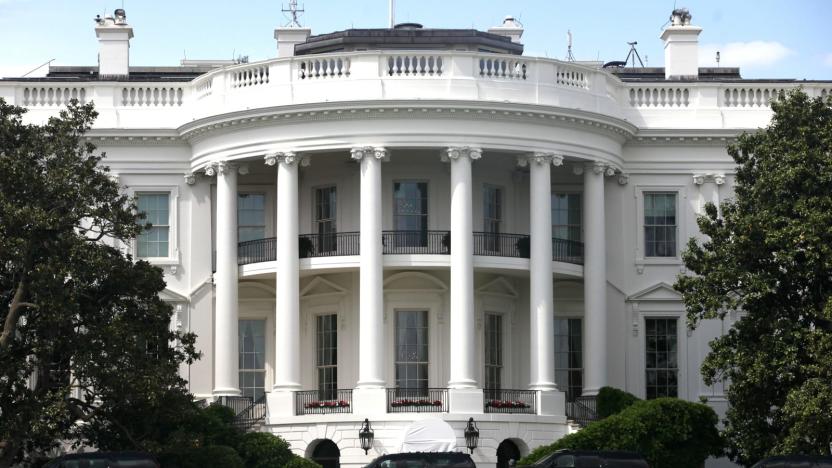
House Science Committee asks Trump to stop relying on fake news
Donald Trump, science skeptic and 45th president of the United States of America, woke up to a message (PDF) this morning from some of his harshest critics. Members of the House of Representative Committee on Science, Space and Technology have issued a letter expressing their concern for the future of the country. Specifically, they question how Trump can effectively govern when he relies so heavily on unverified information and shows blatant disregard for scientific fact.

People are really starting to embrace electric cars
As with any new transportation technology, it's not as simple as building your first vehicle and expecting the whole world to change. And yet, it appears as if the world is finally cottoning on to this whole electric cars are better and cheaper to run thing.











